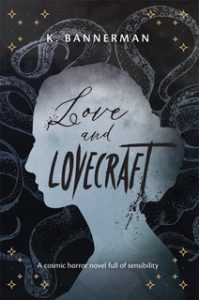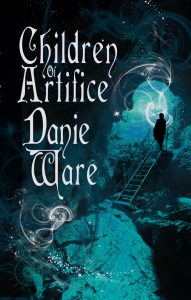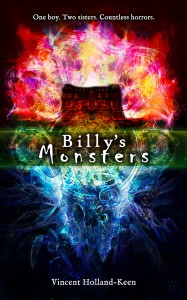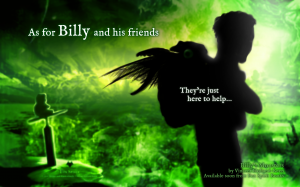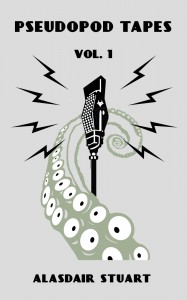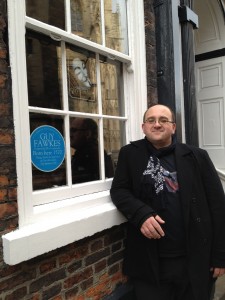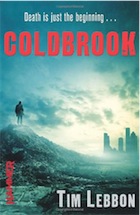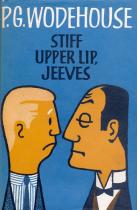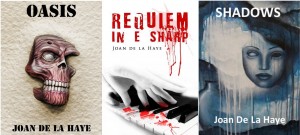As the editors of the Fox Spirit book of European Monsters, Margrét Helgadóttir (MH) and Jo Thomas (JT) have been invited to contribute to the Fox Spirit blog. Now, they could explain how the book sprang out of a Twitter conversation between the editors-to-be, along with a few other guilty parties, about how monsters have been declawed. They could try to find words to explain how happy they are for their first book as editors to see the light of day. Or they could wax lyrical about the stunning stories and breath-taking artwork.
They’re not, though. They’re going to discuss where monsters come from…
MH: So, you wanna go first? What monsters are you afraid of, and why?
JT: I guess the answer to that is rather trite in that it isn’t monsters that scare me. Don’t get me wrong, if I ran into any of the monsters that made the cut for our book, I’d probably collapse in a boneless heap. But the idea of monsters doesn’t scare me as such because they just do what monsters are supposed to do.
In other words, it’s human beings that scare me. As I can’t read them especially well and don’t know what to expect of them–particularly the ones I don’t know–I find human beings unpredictable. So humans are probably my biggest phobia.
Next to mirrors in the dark, but that’s another story.
So, what scares you?
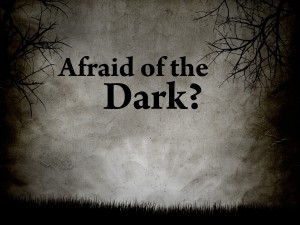
MH: I think I would say something similar. I am very scared of the dark. I’ve always been. I used to check under my bed before turning the light off–and sometimes I still do–I think I would probably die of shock if some day, something was staring back at me. But it has become easier as I have become an adult and more rational. But still, once in a while, I can’t turn off the light. But like you, it’s the humans who scare me the most, more than monsters. I think I can read humans quite well, but maybe that’s the problem. Sometimes I look at a person in a crowd and I think she or he has cold eyes, and it frightens me. When you think about what humans are able to do to other humans or animals–That’s scary.
I always cover my large mirror before I go to bed.
So, what do you think has been most important in shaping your ideas about monsters? Fairy tales, popular culture, something your neighbour told you?
JT: The first monster I remember being in the house was the three-toed snorty-blog. Something to do with a birthday card from an aunt and, obviously, the monster was supposed to be cute and cuddly. I spent several years thereafter being told I was actually the three-toed snorty-blog–what with my being unable to breath properly (I had near permanent colds).
Technically, though, I suppose the first monster in the house was my older sister being told that there were witches hiding down the toilet and they’d eat her if she went at night. This was my dad’s attempt to stop her going to the toilet in the night and she still has to turn the lights on if she wakes up in the night. I do, too, but my monsters are in the mirror, not down the toilet.
Anyway, that’s what monsters should be as far as I’m concerned–a way of explaining something that doesn’t make sense away that can be as good or as bad as it likes–very much like Nature. It might be misunderstood, it might be good at heart, but it probably doesn’t care about you either way. I think the sea monster stories in our book in general capture that well but the Icy Sedgewick story we collected does a particularly good job.
How do you think of monsters?
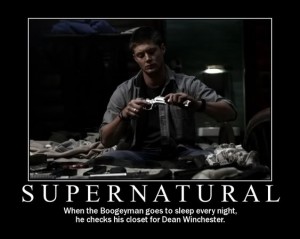
MH: To do the academic approach first, I agree with you. I think monsters throughout our history have been merely products of humans’ inability to explain things, be it the strange mountain shapes, thundering and lightning, or the neighbour who died so sudden. Several of the stories in European monsters is based on such folklore and legends. Aliya Whiteley’s story, for instance, builds on a myth about ‘the beast of Exmoor’, a very interesting legend about an enormous phantom cat roaming the wilderness of Exmoor, most likely a cat which escaped from the zoo, and sadly not so much a real monster. I think also some people in a position of power, be it parents—like your story about your dad and sister–bishops or the elders of a society, have used an idea of a monster or something evil as an efficient tool, as a way of controlling people. And then we have the freak shows and carnivals lurking in our cultural past, and the horror stories told by the camp fire. I think people just love to be scared.
Personally I adore monsters and the idea that there are monsters. Have you experienced how you sometimes can wake up in your bed in middle of the night, certain that you are not alone in the room, but you can’t move, not a muscle? And the air feels icy, and you are terrified that if you open your eyes, something really is in your room? What if the thought that you don’t dare to say out loud–that there is a nightmare, a monster there–is true? How terrifying, but wonderful.
JT: Ah, sleep paralysis and nightmares. I sometimes get that, complete with padding paw-steps coming up the stairs. The first time I had one, I was enraged at being unable to move. I wanted to invite the dog on to the bed but couldn’t because I was paralysed and unable to speak. I was too asleep not to realise the dog I heard wasn’t real as I didn’t have one at the time, but too awake to find the situation scary.
(I’ve also heard other people talking about the same or very similar. Some of them interpreted it as a haunting, some as alien abduction.)
MH: Why do you think monsters have been so overused and watered down?
JT: I think I just unintentionally covered that in the sleep paralysis story I just shared. We start to sympathise with monsters–recognising something of ourselves in them, maybe–or think their powers are pretty awesome and we wouldn’t mind having them as pets if we can’t actually be them.
I guess that’s what bothers me about the Urban Fantasy / Paranormal Romance tendency to de-claw by making monsters love interests. It ends up being an unhealthy, obsessive kind of romance about an ideal on a pedestal instead of a recognition of the individual who has dangerous potential. That said, much as I love reading romances, I find romance is right next to insanity when observed in real life so I suppose I shouldn’t be surprised. Anyway, this is why I wanted to work on a project like European Monsters, a project that gives them their teeth back and takes away the romance.
What particular monsters do you consider overused?
MH: That is exactly why I wanted to do the European Monsters project too. I think especially the humanoid monsters like the vampires and the shapeshifters might have been used too much, if you can say ‘used’ about monsters. I have read hundreds of books about vampires, for instance. I adore these creatures, but I think the images of them in the western popular culture the last decade might have become stereotypes. After Anne Rice introduced the vampires as melancholic and beautiful monsters who are outsiders of the (western) human society, and who only long to be humans and part of the human society, maybe find the true love, we have seen so many interpretations of this. This goes for many monster stories of today, not only stories about vampires: the lonely monster who only wants to be friends with the humans. Many of these stories I think can be read as stories about patterns in the human psyche. But that’s not bad. I love these stories. I have even written a few myself. But sometimes I want to be introduced to different monster stories where the monsters just are monsters, and no philosophy around their existence. Many of the monsters we know are based in western popular culture. I look forward to get to know monsters from other parts of the world, as we continue with the book series.
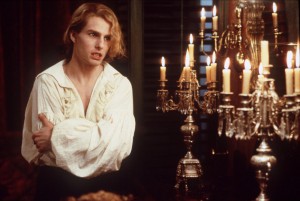
And about nightmares. I think humans’ fears are often revealed through the nightmares: The monster that stalks you, and how you are glued to the ground not able to run away. Or being eaten alive or invaded. I think there is much to Freud’s theories about dreams. I believe our minds work with our anxieties and worries when we sleep just like they renew our cells and heal physical injures or sicknesses. And sometimes in this process our minds produce dreams that might relate to the worries you have, or something you have witnessed, like many trauma victims who suffer from awful nightmares. Yet, now and then I wonder if our dreams are something entirely different, something we have no names for yet. I write some of my dreams down and use them in my writing. But not all these dreams and dream monsters can be tracked back to something I have witnessed or experienced. Some of these monsters, what if they just were there? I don’t make sense now, do I?
You have written about werewolves yourself. When you have been writing these books, have you been conscious about werewolves in western culture?
JT: Yes. I made a conscious decision to “dial back” to an older version–the putting on a wolf skin is a part of the mythology that has been abandoned with the more modern Western / Hollywood version. However, I haven’t been able to escape the idea that werewolves are, at least in part, humans. Which means that some of them are good or behave well because that potential is in all human beings. Not that most of them act on it, as those people who choose to become werewolves are generally after the power, not being nice and fluffy. So, I didn’t go far enough back to ensure that they were driven to do ghastly things, only ensure that they were physically capable of doing it and often inclined to it.
This thing of werewolves, though, really comes from the idea that the Hollywood version wouldn’t work nagging at me. Obviously, the magic for my kind of werewolves doesn’t exist, either, but it feels more consistent and logical, closer to how the world seems to work to me than the glamorous Hollywood version. I wouldn’t have been able to puzzle that out if I hadn’t spent time creating characters and situations to act it all out for me.
What monsters do you feel you need to put some time into to find out how they work? What calls in your dreams or sits in the back of your mind when you’re writing?
MH: I have written a couple of stories based on Norwegian folklore, like our stories about the grey people and the goblins, who are far scarier than the Hollywood version. I have also written a few stories about unbalanced humans, but it’s the shapeshifters who have mainly been haunting my monster writing. Shapeshifters fascinate me, because of the balance between the parts that are human, animal, wild and monstrous. But maybe mostly about how different from humans they are. I don’t have any particular favourite yet and I have written about several kinds. One of these shapeshifters, a lion, has the putting on skin mythology, that you mentioned. It was a belief that existed amongst the sami people and even the vikings. Not any of my shapeshifters have changed by being bitten yet.
I’m also very fasinated by the folklore around shapeshifters and how humans long for the animal characteristics, strength etc. In Norway it’s been common since the old Norse days to name boys after animals (Bjørn-bear, Ulf-wolf, Are-eagle, Orm-snake, Rein-reindeer etc), mainly because one thought the boys would get the animals’ attributes too.
What calls in the back of your mind when you are writing?
JT: Pack. More precisely, the awareness that even if I don’t understand the wider world, I have two dogs that I have to live with and care for. They are my immediate family (barring parent, siblings and their offspring) and I wish I could understand them better. I guess I envy their not being human… But I wouldn’t choose to be a werewolf as I suspect that one can’t be a particularly good wolf unless one knows how to socialise with other wolves.
Roots. I was born outside of the UK, although we returned while I was still a toddler. My parents and grandparents moved quite a bit and I was always encouraged to remember the traditions of the places we came from and had been as well as the places we were living at the time I grew up. So a lot of what I write often appropriates from all over Europe with a touch of the Caribbean. It’s not intentional, more an echo of the material that went in with reading.
Nature. I grew up rurally–although not as wild as it could have been in other parts of the country–and I think it shows. Nature is a true beauty, no matter how tamed you think it is. It can also be monstrous. It doesn’t care, it can as easily be bad for your health as it can be good for you, it works on a grand scale and yet so much of it is made up of critters so small we can’t even see them. I should find a way to include it as a protagonist more often. Perhaps working with monsters is actually part of that.
I guess this leads to asking: As you’ve moved around a bit yourself, how do your travels reflect in your writing?
MH: That is a very difficult question you are asking. So far my stories have been heavily influenced by my Nordic background, Norway and Iceland, where I have lived most of my life. I have a work in progress that takes a place in Africa. I have been thinking about trying to write more stories from Africa for a while. I have moved lots around in general, which has led to a sense of rootlessness and homelessness. I think this might be reflected in my writing. Many of my characters are on the road and on hunt for a home or themselves. This also includes the stories about shapeshifters. I’ve written one story about a young shapeshifter girl who has lived in an orphanage, not knowing who she is or where she is from, but when she becomes a sea eagle, she instinctively knows where her home is.
I think also many of the stories in the anthology European monsters address this balance between the human society and the wilderness and nature, as we have talked about now. And many of the protagonists are searching for something. The girl who lost her boyfriend to the lake monster in Kirsti Walsh’s story, the monster in James Bennett’s story who longs for his home land, or the girl who travels across the world to a woman she doesn’t know in Nerine Dorman’s story.
…And now you know a little bit more about where our monsters came from.
